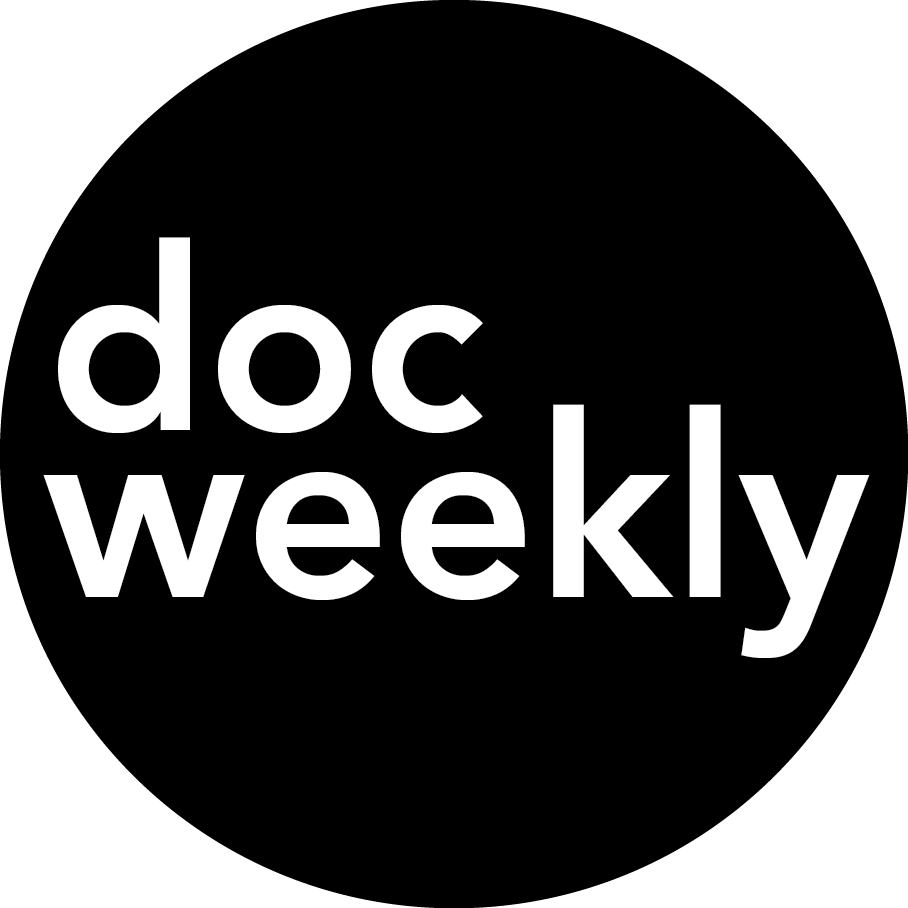Top 5 Documentaries Delayed By Covid 19 - Locarno 2020's Films After Tomorrow
Like all festivals of the past few months, Locarno has altered its format for 2020.
However, with its Films After Tomorrow selection, the organisation has boldly pioneered a truly unique focus. Aside from innovating, its also providing much needed support to the film community, hit hard by the pandemic.
Films After Tomorrow is an initiative to restart cinema by showcasing twenty feature-length projects that are yet to be completed. These are productions that had to put the pen, camera and laptop down due to the coronavirus pandemic, whether in an early conceptual stage or in the editing suite. Each project is presented to camera by its filmmakers, along with an early synopsis, to help us understand the concept and how it has been derailed. Each director then recommends a past film from the Locarno archive that has impacted their personal journey through cinema, and has been made available to stream from the Locarno website.
What’s more, the films are entered in five different competitions, with awards of up to 70,000 CHF (approx. 65,000€), to ensure that they do eventually reach theatrical audiences.
Not only do we think this is a forward-thinking initiative, we’ve also enjoyed hearing about the filming process directly from the filmmakers, including non-fiction heavyweight Wang Bing, providing a rare and novel perspective on the industry.
Although the selection is mostly composed of fictional pieces, here are five documentary projects that we hope will come to fruition…
LUX by Raphaël Dubach and Mateo Ybarra
Geneva faces an unprecedented armed attack from an anti-capitalist terrorist group, the Global Liberation Front (GLF). The Swiss army has been drafted in to support local police. Their mission? To contain the threat as quickly and effectively as possible.
This is the chilling scenario written and played out by the Swiss army itself, in a huge military simulation that took place over ten days in 2019, mobilising 1,500 soldiers. LUX captures this life size game, following its various pawns as they shuttle across the city and surrounding countryside, repelling an invisible invader.
Dubach and Ybarra’s film will explore the ambiguous relationship between reality and fiction, but also challenge viewers’ conception of an institution who’s existence is under increasing scrutiny. Combined with the some of the surreal shots included in its presentation, we’ve got big hopes for this one!
I Come From Ikotun by Wang Bing
Four years ago, Kingsley arrived from Nigeria in Guangzhou, China and shared a small room with other Africans in the basement of a commercial building. He converted this modest space into a barber’s shop. Kingsley is keen to start an import and export company and to register it officially in Guangzhou. He works every day until 11 pm then goes to sleep in a chair at McDonald’s. He must also send money to his wife, so despite all his efforts, he is still unable to put aside enough money to register his business.
In mid-November 2019, he goes back to Lagos to renew his visa. There, he and his wife rent a small stall in the Ikotun Market in the suburbs. But business is hard. Early in 2020, Kingsley is due to head back to China to continue his quest, but with all travel blocked by the Covid-19 epidemic, he remains stuck in Nigeria.
Meanwhile, in Guangzhou, Wang Bing meets Evelyn, a Nigerian woman, trying to survive with her 6-year-old daughter and with another one on the way.
De Humani Corporis Fabrica by Verena Paravel and Lucien Castaing-Taylor
De Humani Corporis Fabrica takes the avant-garde step of using the latest medical imaging technologies to portray one Paris’ poorest state hospitals in the grip of a political, economic, ethical, and medical crisis.
The concept transforms our perception of the human body, in Paravel’s words “as if we were to turn our eyes around inside our sockets and gaze inwards”.
The director-duo’s ambition is to not only create a portrait of the human body, but also the “medical body” of the hospital, and the “political body” of contemporary France, tackling the bioethical and philosophical issues that arise from modern medicine.
L’Afrique des femmes by Mohammed Soudani
Traveling across seven African countries (Ghana, Senegal, Rwanda, Mozambique, Kenya, Ivory Coast, Burundi), L’Afrique Des Femmes sets out to meet powerful women doing everything they can to offer the continent a brighter future.
In their own words, we’ll discover how these determined women believe they are making a difference to African society, which stands at crossroads after generations of catastrophic totalitarian male rule.
It’s time that Africa become a fully integrated member of the world economy in a future that belongs to its women, as Soudani’s film will show.
A Flower in the Mouth by Eric Baudelaire
A Flower in the Mouth is a hybrid diptych about time running out and how to live in the few days that remain. The first act, filmed as an observational documentary in the world’s largest flower market, follows millions of bouquets transiting through a cavernous refrigerated hangar to be sold at auction, an industrial process at once both beautiful and terrifying.
The film transitions to fiction in a second act freely adapted from a Pirandello play. A man with a flower-shaped tumour on his lip accosts a traveller in an all-night café. Their seemingly mundane conversation becomes a metaphysical monologue as the man, feeling death approach, clings to life by scrupulously observing its activity, watching reality in every detail, as if to fill the gap between himself and the rest of the world.












